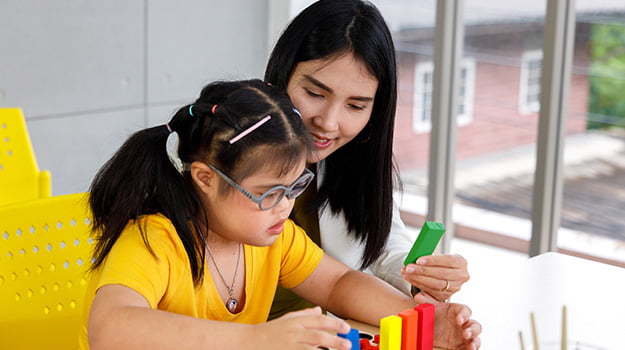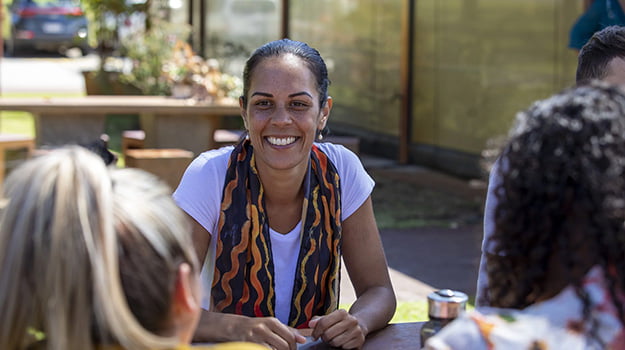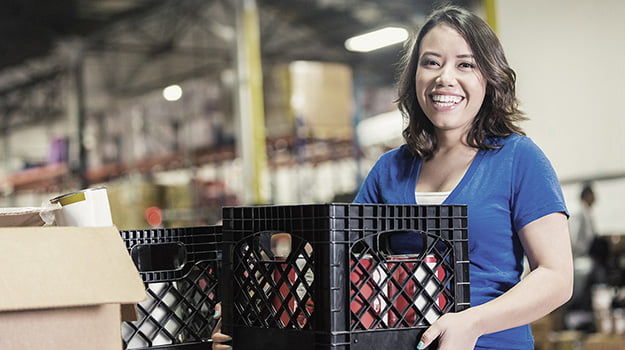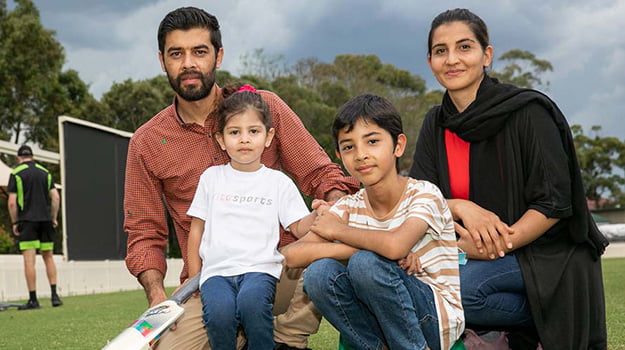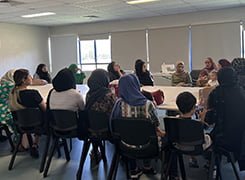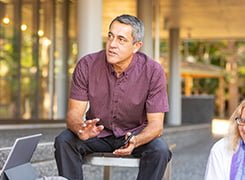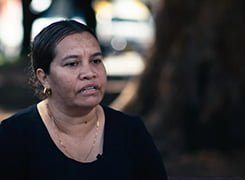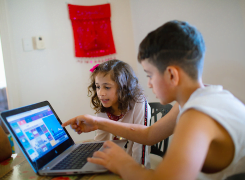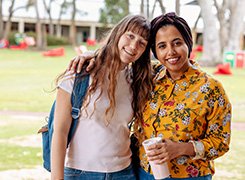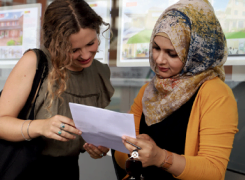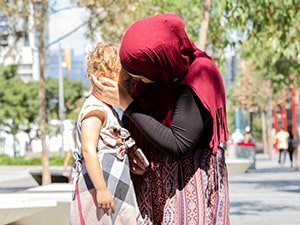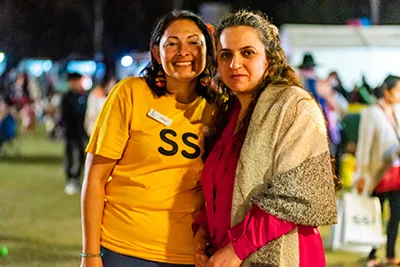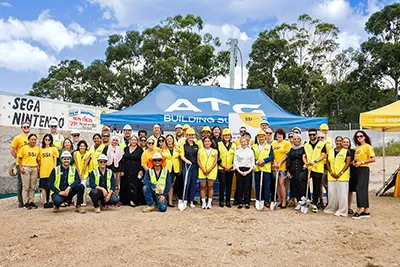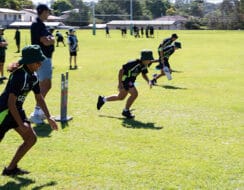20 Jun 2024
Media releasesSkills shortage solution already here with 620,000 hidden workers ready to be activated
The key to easing Australia’s skills shortages could be closer to home than anticipated, with new research commissioned by non-profit SSI showing more than 620,000 migrant workers already in the country do not have the opportunity to fully use their skills.
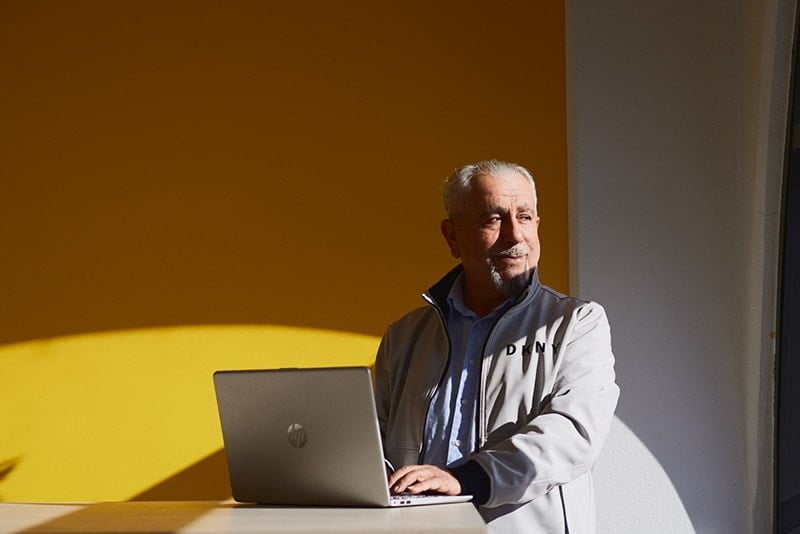
Despite typically having higher qualification levels than their Australian-born counterparts, almost half (44%) of migrants and refugees in Australia are working in roles below their skill level, found Billion Dollar Benefit: The economic impact of unlocking the skills potential of migrants in Australia, developed in partnership with Allianz Australia, LinkedIn, Business NSW and Business Western Sydney, and released today.
In an Australian first, this research, conducted by Deloitte Access Economics, quantified the economic benefit of unlocking this workforce, finding $70 billion could be added to the economy over the next 10 years if permanent migrants worked in jobs that matched their skills at the same rate as Australian-born workers.
Around 51,000 full-time jobs would be added to the economy, wages would increase for migrant and non-migrant workers alike, and productivity would increase at the industry level, with construction, manufacturing, trade and financial service among the industries with the largest productivity increases.
SSI CEO Violet Roumeliotis said Australia’s migration program was designed to attract international talent, particularly to address national skills shortages, but the research showed that more than 621,000 migrants were unable to work to their full potential.
“For years, we’ve known that the underutilisation of skills and qualifications was an issue for our migrant and refugee workforce, but for the first time, we can now quantify just what we as a country are missing out on,” she said.
Like many new arrivals, AbdAlmassih has had no success finding entry-level jobs in IT since coming to Australia in 2023 as a refugee, despite having an extensive career in his home country of Syria.
“Many IT employers won’t acknowledge a degree from overseas, thinking it’s not strong enough. Even unpaid volunteering roles in the industry are turning me down. I don’t understand. I have 20 years experience in my field. I apply to many jobs, yet I never receive any response,” he said.
The research found that unlocking opportunities for AbdAlmassih and thousands of other migrants and refugees would be possible by streamlining overseas qualification recognition, ensuring all migrants have access to language training in employment contexts, combating racial discrimination, and more.
“This would deliver a significant economic benefit, but the real win is to individuals – dismantling barriers excluding migrants and refugees would ensure these workers have equal opportunity to realise their full potential,” Ms Roumeliotis said.
Other key findings included:
- Recent migrants are 1.7 times more likely to hold a university-level qualification compared to the Australian-born workforce.
- Migrant workers are currently earning $3.9 billion less than they would if they worked at their skill level at the same rate as Australian-born workers.
- Industries that would see the greatest increase in employment from harnessing the skills of migrant workers are professional services, public administration, and education. But other industries – construction, manufacturing, trade and financial service industries – would have the largest productivity increases.
- The results also indicate a growth in the output of the dwellings sector – that is, housing supply increases because of a more productive and better resourced construction industry.
- Every state and territory would benefit from better utilising the skills of migrants. The largest benefits would flow to New South Wales (increasing the state economy by $2.5bn and 12,357 jobs), Victoria ($2.2bn and 12,351 jobs), Queensland ($1.8bn and 9,706 jobs) and Western Australia ($1bn and 4,148 jobs).
- The underutilisation of migrants is not due to the fields of study they are qualified in. Across every broad field of study, migrants are less likely to be working at the correct skill level, relative to their Australian-born counterparts – despite, on average, being more qualified.
Quotes attributable to Allianz Australia Managing Director, Richard Feledy
“Through Allianz’s partnership with SSI, we have supported over 280 scholarship recipients and provided employment opportunities for 36 people from refugee backgrounds. In providing financial and employment assistance, we’re not only helping to provide a secure future for these recipients and their families, we’re also promoting diversity and innovation. Embracing skilled refugees and migrants can address critical skills shortages, drive economic growth, and contribute to better decision making and outcomes for all”.
Quotes attributable to LinkedIn Country Manager, Australia and New Zealand, Matt Tindale
“LinkedIn is proud to partner with SSI to shed light on the huge economic benefit of unlocking the skills potential of migrants and refugees in Australia. LinkedIn data has revealed how a skills-first approach to the labour market, in which people are hired based on skills rather than degrees or certification, can help businesses worldwide benefit from more diverse talent pools and more equitable hiring processes. As world markets continue to adjust to global movements and rapid technological advancements, governments and businesses need to remain agile and adapt, or risk missing out on significant opportunities that positively impact companies, the economy, and society.”
Quotes attributable to Business NSW CEO Daniel Hunter
“Skilled refugees and migrants have overcome significant barriers in coming to Australia, and we are very fortunate that they are here. Businesses that are crying out for workers must broaden their search to harness migrants’ potential.
“There is a double whammy effect from employing skilled refugees and migrants. Not only does it help people reach their potential, but it also helps ease skills shortages and increases participation in the economy.
“It is time for businesses, government, and community leaders to come together and ensure that every individual has the opportunity to thrive and contribute to NSW’s and Australia’s prosperity. The future of Australia depends on our ability to unlock and harness the potential of all our people.”
Quotes attributable to Business Western Sydney Executive Director David Borger
“I have witnessed firsthand the incredible potential that migrants and refugees bring to our region. Western Sydney is a vibrant, diverse community, home to many new Australians who possess a wealth of skills and talents that are often underutilised.
“Despite their qualifications and experience, too many migrants and refugees find themselves in jobs that do not match their skills or aspirations. This is a significant loss, not only for the individuals but for our economy and communities. We must do better in recognising and harnessing their capabilities.
“Western Sydney stands to benefit enormously from fully integrating the talents of our migrant and refugee populations. By tapping into this potential, we can drive innovation, fill critical skill shortages, and enhance the cultural richness of our community.”
Additional case studies
Alaa Daher
Since arriving in Australia in 2023, Syrian refugee and Automation Engineer Alaa Daher has faced significant challenges in finding employment in his field despite his extensive efforts. Alaa, who holds a Bachelor’s degree in Electrical Engineering from Damascus University and has substantial professional experience, has developed his English language skills, obtained his driver’s license, had his degree recognized, and completed work-readiness workshops. However, he has encountered the same response to over 70 job applications: a lack of Australian work experience. Currently, Alaa works as a banking assistant at a bank to support himself. He remains determined to resume his engineering career and advocates for a simplified system to match skilled migrants with suitable job opportunities.
Chantal Mousad
Before being forcibly displaced from her home country, Syria, single mother Chantal Mousad held the highly influential position of Chief Risk Officer in the Middle East. A year after gaining a humanitarian visa to come to Australia in 2017, she joined the CareerSeekers program in Sydney and began a graduate internship at Commonwealth Bank to restart her career. Chantal advanced to become a Digital Analyst, Risk Manager, and eventually a Senior Manager in Risk at Westpac. Now an ambassador for Westpac Foundation, she supports HBE in Melbourne and engages in refugee research and advocacy. Despite her achievements, Chantal faces structural challenges in her career progression and struggles to secure an MBA scholarship due to her overseas qualifications.
About the report
The research was commissioned by non-profit SSI, conducted by Deloitte Access Economics, and jointly funded by SSI, Allianz Australia, LinkedIn, Business NSW and Business Western Sydney. This report is the first to explore the national economy-wide impacts of more fully utilising the skills of migrant professionals in Australia. It also examines the extent of skills underutilisation, finding that migrant women, migrants from non-OECD countries, and humanitarian entrants experience a greater skills mismatch than others. The report is part of the Billion Dollar Benefit, an advocacy movement of more than 70 organisations committed to reducing employment barriers so more refugees and migrants can work in their fields of expertise and, in doing so, add billions to the Australian economy.
About SSI
Settlement Services International (SSI) delivers a range of human services that connect individuals, families, and children from diverse backgrounds with opportunities – including settlement support, disability programs, community engagement initiatives and training and employment pathways. At the heart of everything we do is a drive for equality, empathy, and celebration of every individual.
Media enquiries
Hannah Gartrell
Head of Executive Communications and Media
0423 965 956
press@ssi.org.au

